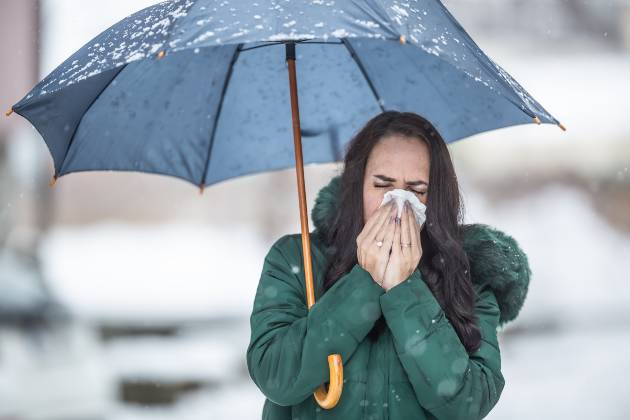We’re all now knowledgeable on the dangers of tobacco smoking and aware that cigarettes release harmful chemicals when they burn.
We know that tobacco smoke can cause widespread harm to the body and that it’s a leading risk factor for many conditions including chronic obstructive pulmonary disease and lung cancer. Not only that, but second-hand exposure isn’t risk-free.
“The good news,” says Jessica Turner, Professional Lead for Public Health at the RCN, “is that in recent years tobacco smoking rates have continued to decline.”
“However, the harm still remains high – tobacco use kills over half of its users as well as causing significant long-term damage, and it's currently the world’s single biggest cause of preventable death,” she adds.
As nursing staff we should make every contact count
So where do e-cigarettes, otherwise known as vapes, fit into the picture? As you’re probably aware, these are battery-operated devices that mimic cigarettes and release vapor.
This can replace, to some extent, the nicotine a person would have received from smoking. And in recent years, e-cigarettes have also become a popular way to stop smoking in the UK.
According to figures from Action on Smoking and Health, the proportion of the population who vape is around 10% – that’s approximately equal to 5.5 million adults in Great Britain.
On 1 June 2025, single-use disposable vapes were banned across the UK, with the aim to tackle waste and the impact of vapes on the environment, and to help cut the number of children and young people vaping.
But while reusable vapes are more sustainable, are they really a better option for our health?
How can vapes/ e-cigarettes benefit smoking cessation? And what can nursing staff do to make sure they make every contact count?
Let’s take a look.
Are e-cigarettes less harmful than cigarettes and should they be recommended?
The NHS says that nicotine vaping is less harmful than smoking and that it’s also one of the most effective tools for quitting smoking. However, vaping is not completely harmless and we don’t know yet what the long-term effects may be.
Vapes are not recommended for non-smokers and cannot be sold to people under 18 years old. In addition, little research has been conducted into the safety of e-cigarettes and e-liquids in pregnancy.
The current recommendation is to combine behavioural support with nicotine replacement therapy such as patches, gum, sprays, or lozenges and/or medication such as Varenicline, Cytisine and Bupropion.
E- cigarettes are now part of that recommendation and there is evidence that they can be an effective aid for increasing smokers’ chances of quitting.
The NHS highlights some useful myths and facts when it comes to vaping.
What’s the RCN view on government aims around tobacco and vapes?
We’re supportive of the mission of the Tobacco and Vapes Bill, which aims to substantially reduce smoking and vaping rates.
The bill aims to ban the sale of tobacco products, including herbal smoking products and cigarette papers, to people born after 1 January 2009 to prevent future generations from starting to consume these products.
Throughout parliament's scrutiny of the bill, the RCN has briefed parliamentarians about the importance of supporting the public health nursing workforce which delivers many key smoking reduction services in communities across the UK.
What can nursing staff do?
“As nursing staff, we're in an ideal role to support patients to stop smoking and should make every contact count,” says Jessica.
“Smoking tobacco is a relapsing addiction – we know it can be tough to stop smoking and many people make multiple attempts before successfully quitting long term.”
Making Every Contact Count is a concept aimed to support public health, she adds. “The idea is to use behaviour change techniques using the many day-to-day interactions we all have, to support people in making positive changes – one of which is to stop smoking.”
The National Centre for Smoking Cessation and Training (NCSCT) has also developed a short training module on how to deliver Very Brief Advice on Smoking built around evidence-based behaviour change techniques.
The techniques contained within this are:
- ASK – patients if they smoke and record smoking status
- ADVISE – on the most effective way of quitting
- ACT – if interested, refer to local Stop Smoking Service or in-house stop smoking support or any other support options locally available.
Where can I refer patients?
Referral systems vary but can be done by contacting local services direct or via a national referral system.
In England:
- find stop smoking services in England
- call the free Smokefree National Helpline on 0300 123 1044.
In Northern Ireland
- find stop smoking services in Northern Ireland
- call a provider in the town or city where you live (telephone numbers can be found on the Stop Smoking NI website).
In Scotland:
- find stop smoking services in Scotland
- call the free Quit Your Way Scotland helpline on 0800 84 84 84.
In Wales:
- find stop smoking services in Wales
- call the free Help Me Quit helpline on 0800 085 2219.
Where can I find out more?
- More information and resources on smoking cessation and vaping can be found at RCN Learn: smoking cessation.
- Join the RCN Public Health Forum.
- Action on Smoking and Health (ASH) is a campaigning public health charity that works to eliminate the harm caused by tobacco.








